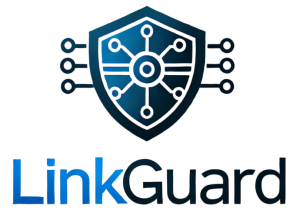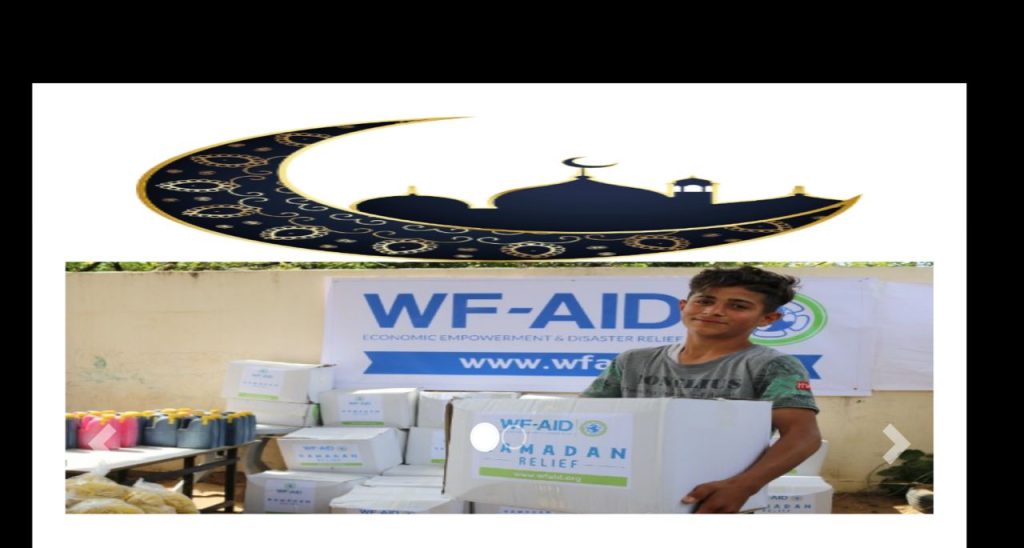Claim
A website (https://Ramd-grant.give-out.today) is circulating online, claiming to offer a Ramadan Relief Package 2025 for Muslims in need. The website asks applicants to provide personal details such as name, country, phone number, and city before submitting their application.
After applying, users are taken to a confirmation page featuring fake Facebook-style comments, claiming that people have already received their relief package.
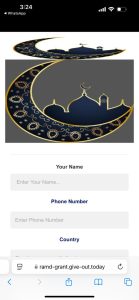
Verdict: False
The claim is false. The website is fraudulent and is not affiliated with any legitimate humanitarian organization or government relief initiative.
Analysis
1. No Verified Ramadan Relief Program
There is no known international or government-backed relief program under the name Ramadan Relief Package 2025 as described in the fake website. Legitimate humanitarian aid organizations such as:
✅ The Red Cross
✅ Islamic Relief
✅ The United Nations World Food Programme (WFP)
✅ Local Zakat Foundations
Announce their official relief programs through verified websites and trusted news sources—not random, unverified links circulating on WhatsApp and social media.
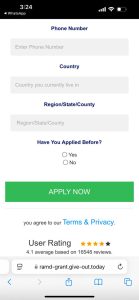
2. Suspicious Website Domain
The fraudulent website uses a suspicious URL: Ramd-grant.give-out.today.
- It does not belong to any official humanitarian or government organization.
- The domain is designed to mimic legitimate aid programs but is actually a scam.
Legitimate aid programs use official domains such as .org, .gov, or .int, not random, newly registered domains.

3. Fake Facebook Comments
After applying, users see Facebook-style comments from supposed beneficiaries who claim they received relief packages. However, these comments are fake and manipulated to appear as if they are from real Facebook users.
✅ Red Flags in the Fake Comments
- The comment section is not interactive—you cannot like, reply, or report them like real Facebook posts.
- The usernames and profile pictures are generic and do not link to real Facebook accounts.
- Identical comments appear on multiple scam websites, showing that they are copied and pasted for deception.
This tactic is a common social engineering trick used by scammers to build false credibility.
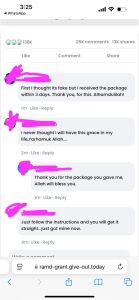
4. No Transparency on Distribution Process
Legitimate humanitarian programs provide clear information about:
- Who is eligible for the relief package.
- Where the aid is distributed and how beneficiaries can claim it.
- Official contacts or partners involved in the initiative.
The fake website lacks all these details, making it clear that it is a scam designed to harvest personal information.

5. Potential Data Theft & Financial Fraud
By asking for personal details such as name, phone number, and city, the scammers behind this fake relief package may be:
- Selling user data to fraudsters.
- Targeting victims with future scams.
- Using personal details for identity theft or phishing attacks.
Conclusion: Avoid This Fake Ramadan Relief Package Scam
DO NOT click on the fake link or submit your details.
DO NOT share this website with others.
REPORT fake relief programs to relevant authorities and humanitarian organizations.
For legitimate relief programs, visit the official websites of Islamic Relief, the United Nations, or government aid agencies. Stay vigilant and verify information before applying for any financial assistance online.
